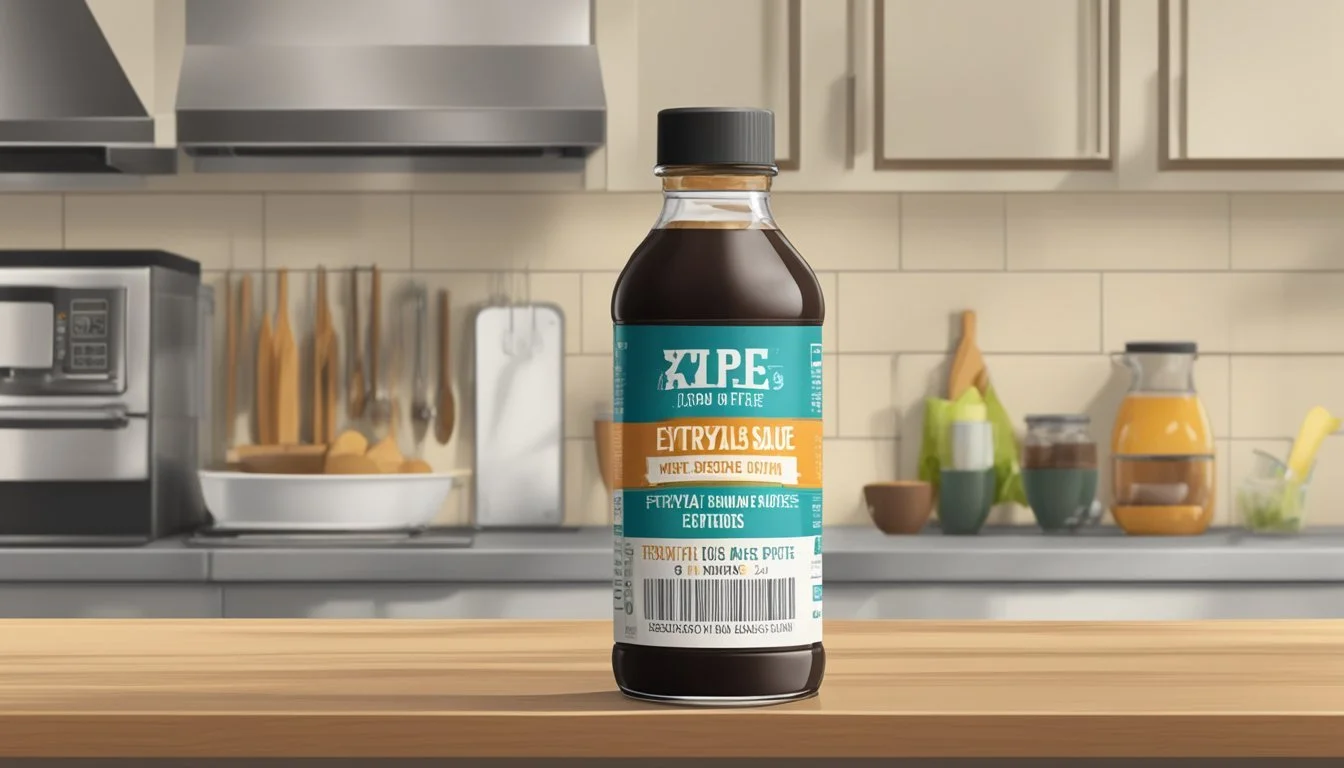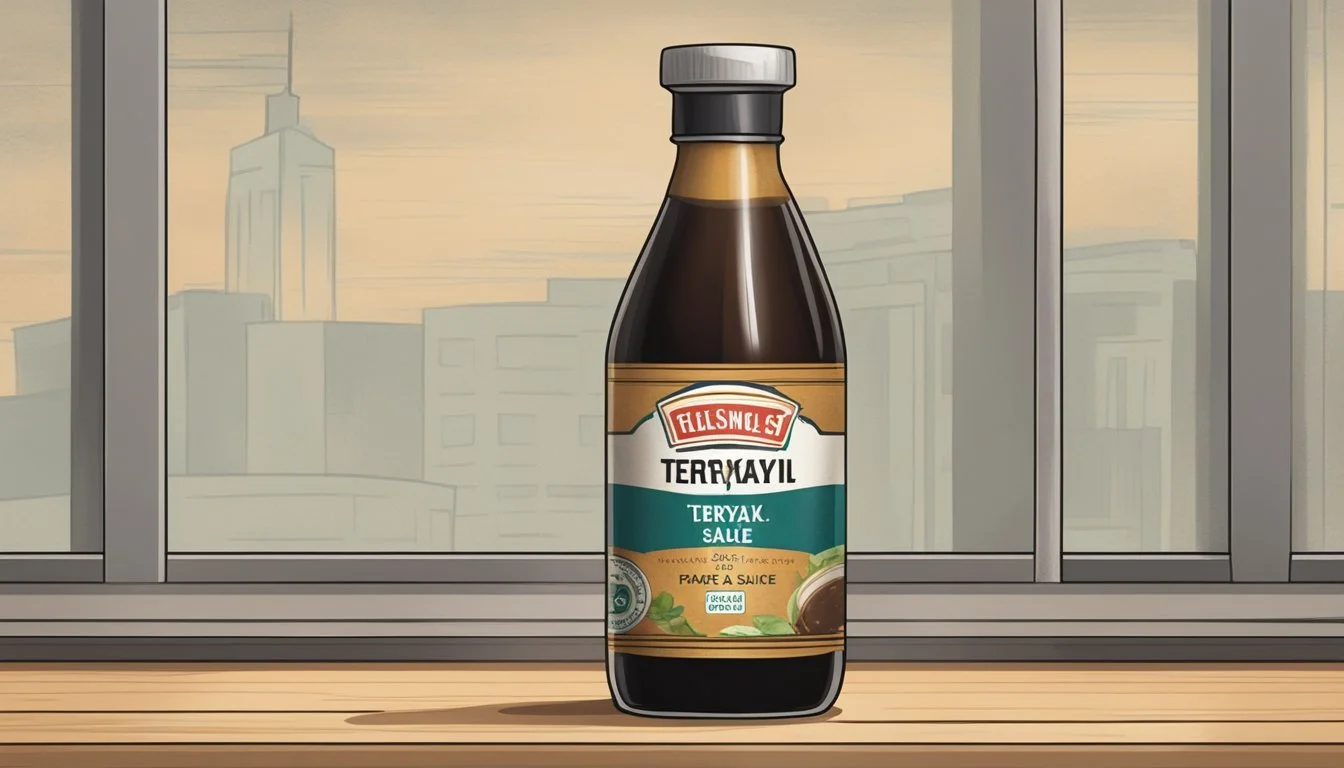Is it Safe to Eat Expired Teriyaki Sauce?
Understanding Food Safety Limits
Teriyaki sauce is a favorite condiment with a rich, savory-sweet flavor, commonly used in various cuisines to marinate or glaze meats and vegetables. Like many store-bought condiments, teriyaki sauce comes with an expiration date, often leading to the question of whether it is safe to consume after this date. Although the expiration date serves as a guide for optimal quality, many sauces maintain their safety and taste qualities for some time beyond this date, especially if they remain unopened and are stored properly.
The quality of teriyaki sauce can be influenced by how it is stored. An unopened bottle stored in a cool, dry place away from sunlight may retain its quality longer than the expiration date suggests. It is generally believed that commercial teriyaki sauce, which contains preservatives, will last longer than homemade varieties because the preservatives help to prevent spoilage.
Once opened, it's essential to refrigerate teriyaki sauce to maintain its quality and safety. Visual inspection for signs of spoilage such as mold or an off odor, and evaluation of taste and texture, should be a routine practice when considering the use of an expired sauce. Even though the risk of spoilage is low when proper storage methods are followed, consumers should still use their best judgment to assess the quality of teriyaki sauce past its expiration date.
Understanding Teriyaki Sauce
Teriyaki sauce is a traditional Japanese condiment that balances sweet and savory flavors. This sauce is integral to many Asian dishes, acting as both a marinade and a glaze.
Ingredients and Recipe
Teriyaki sauce traditionally consists of four primary ingredients: soy sauce, sugar, mirin (a sweet rice wine), and sometimes sake (a Japanese rice wine). The sauce achieves its signature flavor through a sweet and savory blend, with sugar bringing sweetness and soy sauce providing a rich umami base. Mirin, with its mild sweetness, complements the overall balance of flavors.
Homemade vs. Store-bought
Homemade teriyaki sauce generally includes the same base ingredients but lacks the preservatives found in many store-bought brands. Homemade teriyaki sauce can be made by simmering ingredients until they reduce to a thicker consistency, allowing natural flavors to intensify without artificial additives. In contrast, commercial varieties may include stabilizers and a longer shelf life, appealing to those seeking convenience.
Culinary Uses
In Japanese cuisine, teriyaki sauce is used as a marinade for teriyaki chicken, as well as for other proteins like fish and meat. It can also serve as a glaze for cooked dishes or as a flavorful addition to vegetables. The sauce's versatility makes it a staple condiment in many kitchens, suitable for grilling, baking, or stir-frying.
Food Safety and Expiration
Understanding expiration dates and recognizing signs of spoilage are key in determining the safety of consuming expired teriyaki sauce. This section offers specific insights into the shelf life of teriyaki sauce and what to look for in order to avoid foodborne illnesses.
Understanding Expiration Dates
Expiration dates on food products such as teriyaki sauce commonly appear as a Best By or Use By date. These labels indicate the manufacturer's estimate of when the product will be at its peak quality, rather than a definitive safety cutoff. While a Best By date serves as a guideline for optimal flavor and quality, it does not necessarily mean the product is unsafe to consume past that date.
Shelf Life Factors
The shelf life of unopened teriyaki sauce can extend from 1 to 3 years, largely depending on the storage conditions. To maximize shelf life, teriyaki sauce should be stored in a cool, dry place, away from direct sunlight. Once an opened bottle of teriyaki sauce has been exposed to air, refrigeration becomes important to slow the growth of bacteria, and it typically remains in good quality for 3 to 6 months.
Signs of Spoilage
Consumers should be aware of the telltale signs of spoilage, which can include:
Odor: A distinct, sour, or fermented smell that deviates from the sauce's normal aroma could indicate spoilage.
Color and Consistency: Any major changes in color or an unexpected change in consistency, such as the presence of mold or a thickened texture, should raise concerns.
Container Integrity: A leaking, bulging, or otherwise compromised container suggests a breach in packaging that could risk contamination.
If any of these signs are evident, it is safest to discard the sauce to prevent the risk of nausea, vomiting, diarrhea, and other symptoms associated with foodborne illness.
Storage Guidelines
Proper storage is crucial for maintaining the quality and safety of teriyaki sauce, both before and after opening. How one stores the sauce affects its shelf life and freshness, preventing the unwanted growth of bacteria.
Unopened Teriyaki Sauce
One should store an unopened bottle of teriyaki sauce in a cool, dry place such as a pantry or kitchen cabinet, away from heat sources and direct sunlight. This preventive measure safeguards the sauce from premature spoilage and extends its shelf life, sometimes up to three years beyond its printed date.
Location: Pantry or kitchen cabinet
Conditions: Cool, dry, and dark place
Shelf Life: Up to 3 years past 'best-by' date
Opened Teriyaki Sauce
Once opened, teriyaki sauce must be refrigerated to inhibit the growth of bacteria. It should be kept in an airtight container to minimize exposure to air which can compromise the sauce's quality. Typically, opened teriyaki sauce retains its freshness for several months when stored in the fridge.
Location: Refrigerator (fridge)
Container: Airtight
Shelf Life: Several months
Freezing Options
While not commonly practiced, one can freeze teriyaki sauce to extend its usability. It is best to use an airtight container or properly sealed freezer bags. It is critical to thaw the frozen teriyaki sauce completely in the refrigerator before use, and it's advisable not to refreeze previously thawed sauce.
Method: Freeze in an airtight container or freezer bags
Shelf Life: Up to 6 months
Thawing: In the refrigerator, never at room temperature
Impact on Quality and Taste
When teriyaki sauce expires, its quality and taste may deteriorate over time. The sauce's freshness becomes compromised which can lead to changes in flavor, and alterations in texture and consistency. The label's expiration date is a good indicator of when these changes may become significant.
Flavor Changes Over Time
Expired teriyaki sauce can experience degradation in flavor. While fresh teriyaki sauce should have a harmonious blend of sweetness and saltiness, an expired bottle may lose its distinctive flavor profile. Users might notice a lack of freshness in taste, which often translates to a dullness or an off-flavor that wasn't present when the sauce was first opened.
Texture and Consistency
The consistency of teriyaki sauce can change when it is past its expiration date. Fresh teriyaki sauce typically has a smooth, viscous texture, but over time thickening or separation might occur. Should the sauce become excessively thick or if the ingredients start to separate, it indicates that the sauce is no longer at its best quality.
Appearance and Color
An evident sign of quality deterioration in expired teriyaki sauce is its appearance and color. Fresh teriyaki sauce should have a deep brown coloration and a homogenous appearance. As the sauce ages, it may undergo discoloration—a shift to a duller or lighter color—and may appear less inviting to consume.
Safe Consumption Practices
Ensuring the safe consumption of teriyaki sauce, especially past its expiration date, involves recognizing spoilage signs, employing methods to reduce illness risks, and understanding when and how it’s possible to utilize the sauce safely in various cooking contexts.
When to Discard Sauce
Expired teriyaki sauce should not automatically be discarded. However, it must be thrown away if any signs of spoilage such as mold growth, unusual odors, or changes in color or texture are present. Containers that are leaking, bulging, or damaged also indicate potential spoilage and contamination. Such sauces pose a risk of foodborne illnesses and should therefore be eliminated from the pantry.
Minimizing Risk of Illness
To mitigate the risk of illness, consumers should consistently practice food safety measures:
Refrigeration: Teriyaki sauce should be kept in the refrigerator once opened to slow down the growth of bacteria.
Clean Utensils: Always use clean utensils to prevent cross-contamination.
Hygiene: Maintaining a clean environment when handling teriyaki sauce is essential.
Furthermore, one should always inspect the sauce before use, even if the expiration date has not yet passed, as improper storage, such as keeping the sauce at room temperature after opening, can accelerate spoilage.
Utilizing Expired Sauce
Expired teriyaki sauce that shows no signs of spoilage can still potentially be used in recipes. When cooking with it, one should always heat the sauce thoroughly, as high temperatures can destroy certain types of bacteria, hence reducing the risk of acid and heat-sensitive bacteria. However, this does not guarantee the elimination of all possible contaminants, and when in doubt, it is safer to err on the side of caution and not consume the sauce. If the quality of the sauce has diminished, such as a loss in flavor or aroma, it's advisable to consider whether its inclusion will impact the desired outcome of the dish.
Conclusion
When considering the safety and freshness of teriyaki sauce, it is essential to note that it typically remains safe to consume for some time past the printed expiration date, especially when unopened and stored properly. The ingredients in teriyaki sauce, such as soy sauce and sugar, act as preservatives that extend its shelf life. However, once opened, teriyaki sauce should be refrigerated to maintain its quality.
Shelf Life: Unopened teriyaki sauce can last up to 2 years if stored in a cool, dry place.
After Opening: Refrigerate and ideally use within 3 to 6 months for best quality.
Signs of Spoilage:
Odor: An off-smell is a clear indicator that the sauce should not be consumed.
Appearance: Any signs of mold or discoloration mean the sauce has gone bad.
Texture: If the texture of the sauce has changed, it may be unsafe to eat.
Consumers should always verify the condition of their teriyaki sauce before using it. If there is any doubt about the sauce's integrity due to changes in smell, color, or texture, it is best to err on the side of caution and discard the product. The safety of consuming expired food products, including teriyaki sauce, depends on the product's exposure to contaminants, how it has been stored, and its packaging condition. Adhering to proper storage methods post-opening will help ensure the sauce remains safe and delicious to use.





